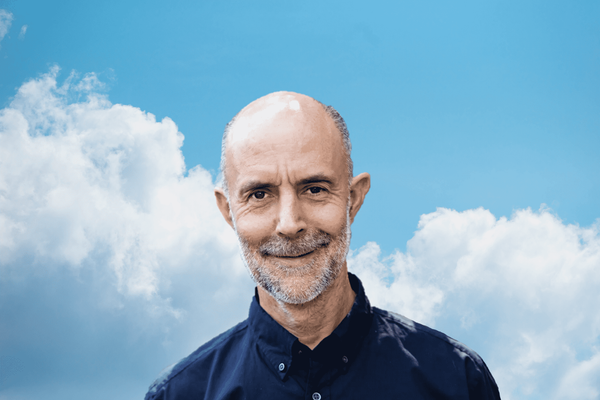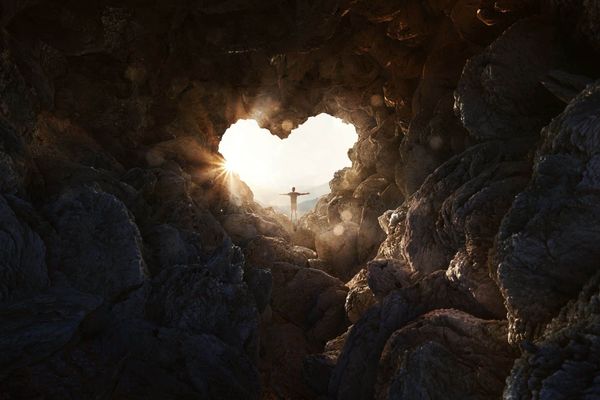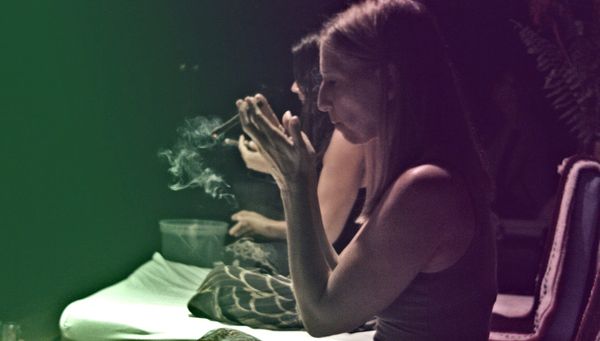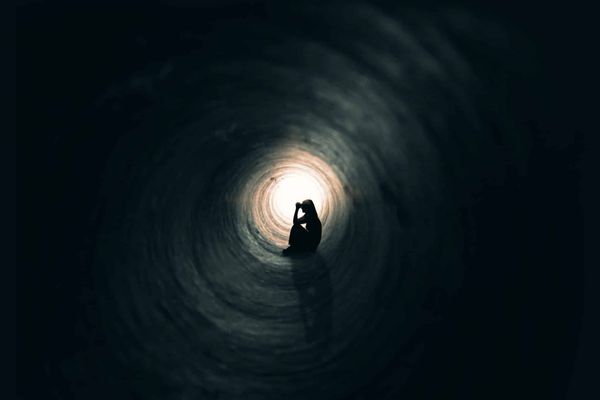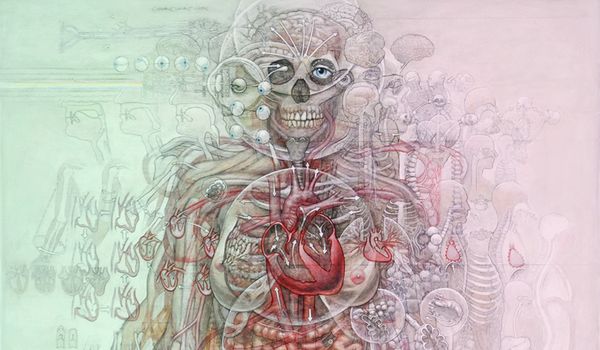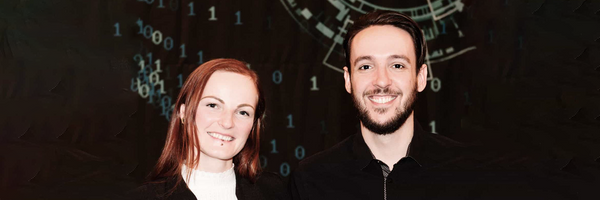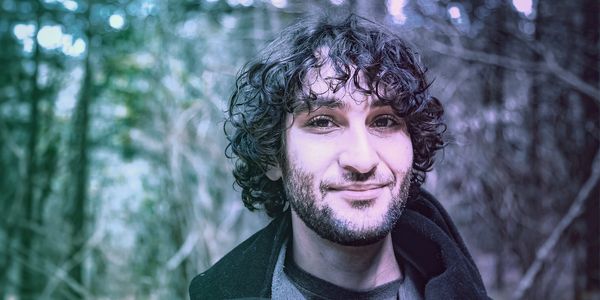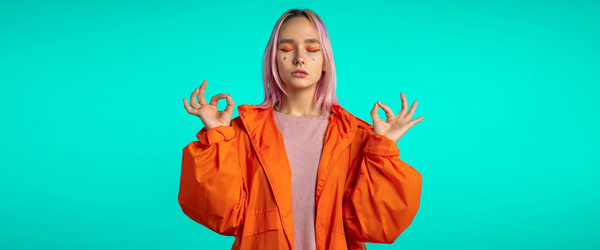Nikojive • • 11 min read
How I Embarked On A Slippery Hero’s Journey By Following My Bliss(ters)
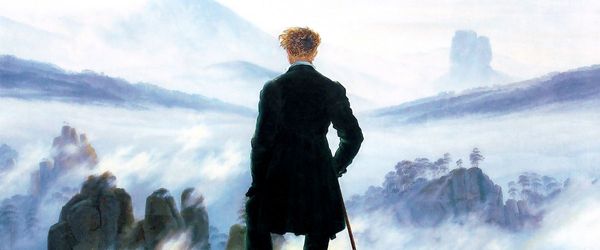
This is post 1 of 3 in the series “Hero's Journey”
Nikolaj Knub’s journey on the Hero’s Path.
- How I Embarked On A Slippery Hero’s Journey By Following My Bliss(ters)
- Finding Guidance on the Hero’s Journey: A Story of My Apprenticeship With “The Cacao Shaman”
- Entering the Caves of the Unconscious: A Story of Crossing the Threshold on the Hero’s Journey
Allow me to explore with you one of the most spontaneous and life-changing decisions of my life.
Six months ago, I had finished my studies and found a part-time job teaching philosophy. I believed that I was on the right track, and didn’t particularly question the life that I was living.
However, on one fine, cold winter day in Copenhagen, all of that changed abruptly. This is the story of how—by following my bliss(ters)—I embarked on what Joseph Campbell called a “hero’s journey”.
Isn’t it puzzling, how in some privileged moments, we have the immense courage and determination to fundamentally alter the direction of our lives in a split second, while in other circumstances we have a hard time even figuring out what to have for dinner?
Isn’t there something strange, yet vital at play when, disregarding all concerns for comfort and safety, we say “fuck it!” and jump into the unknown, even though it defies all logic and rational thought?
What kind of force is it that pushes us to take these life-defining leaps? Where does it come from? And how can we learn to open ourselves and trust it?
Answers to these questions remain a mystery to me. Nonetheless these tough questions seem crucial to pose, if we want to master our capacity for responding to life, and learn how to take the necessary steps towards becoming who we are. Even though I’m far from having any final answers on the matter, I would like to share my experience and reflections about the type of event I have come to know as “the call”.
Breaking Open the Future
Leading up to that defining winter day in Copenhagen, I had an intense experience with my friend, when during our conversation he became certain that he had no choice but to leave his girlfriend, whom he had been with for seven years.
This sudden realization felt like thunder in the middle of the room, as if lightning had just broken open his whole existence, splitting his identity to pieces. This was certainly not the ordinary coffee talk, but a pivotal, life-defining event that made us both acutely aware of life itself: so powerful and raw, yet so fragile and precious.
As I came out of the café, I noticed the sky over Copenhagen seemed loaded with significance, as if to assure us that life was much greater than what all our plans and boxes could contain. All had been thrown up in the air, and now the horizon was washed clear by my friend’s courageous decision. He demonstrated a most valuable lesson to me that day: radical breaks with who you thought you were, and the future you identify with, are indeed possible—at times even necessary—if you just have the courage to feel and respond.
Waking up the next day, I could still sense the exhilarating experience lingering in my body. I went online and, suddenly, I felt compelled to buy a ticket to Guatemala. I had recently done a cacao-ceremony and now I wanted to visit the shaman who facilitated it (more on that in my next blog post). Something triggered in me when I saw the ticket for Guatemala, and I was filled with intense joy and excitement.
Usually my rational sense would warn me that it was not possible to go Guatemala—and certainly not on such a short notice. ‘Remember you have a job, plans, obligations! . . . this is irresponsible! . . . pull yourself together man!’. But something which felt “Other” than myself was taking charge that morning, and before my rational faculty could kick in, I had already clicked my way to a purchase. It happened without any hesitation; I barely realized what I was doing until after it was done.
The joy was immense when I saw the confirmation page. I jumped up from the chair and started running around my apartment, shouting: ‘Yes! Yes! Yes! You did it! You did it! Way to go man!’ It felt so powerful, as if I was suddenly given access to an immense force that I had forgotten existed. Finally I had the strength to follow through on what I knew was a deeper yearning in me. Not just settling for what was easy, secure, and uncontroversial; not just conforming to what I thought other people expected of me. Instead, I was honoring something which seemed much more important, something which seemed to call me from the center of my being.
Looking back it seems as if I had little choice but to respond to “the call”. If I didn’t respond I would have been compromising with an inner knowing, thus becoming more estranged and alienated from myself. By responding, I once again assumed responsibility for my life. Such was my feeling those days in December—like I had won back a part of myself which I had been disconnected from. My life once again felt like a great adventure, like I was on a path—even though I had no idea where it led.
The Hero’s Journey
Coming home after four powerful months in central America, I am now trying to digest all that I have experienced. I’ve apprenticed with a cacao-shaman in the volcanic highlands of Guatemala, lived deep in the jungle with a modern “curandera” doing plant ceremonies, and did a five day darkness retreat, dwelling in a pitch black cave full of toads and lizards. So much has happened that I feel like bursting out with everything, but one thing at a time.
Looking back, it seems clear that it all began that December morning in Copenhagen, when I felt Guatemala calling. But why look at it as a “call”? And how can I be sure that I was not just escaping responsibility, but actually taking it upon me? How can I know that I was not just deceiving myself, creating a fancy and heroic interpretation for something that actually came from a cowardly urge to flee from my everyday struggles by running off into the exotic jungle?
To go deeper, I have to inquire about what actually characterizes a call, what its function is, and how we can learn to recognize when we are called, and when we are just fooling ourselves in order to escape.
In his seminal work “The Hero with a Thousand Faces (1949)” legendary mythologist Joseph Campbell outlined what he called the “the hero’s journey”: an archetypal journey that Campbell has found repeated again and again throughout virtually all the world’s mythic traditions.
For Campbell, the journey of the hero is a universal motif, a “monomyth” as he calls it, narrated and passed on from Gilgamesh to Harry Potter, in order to guide each one of us on our journey through life. As Campbell assures us: “… the heroes of all time have gone before us, the labyrinth is thoroughly known; we have only to follow the thread of the hero-path”.
“The hero’s journey” not only speaks of the unique and singular hero, but addresses the hero inside each of us. Regardless of our specific outer circumstances, we are all in a sense living the same internal adventure. For the journey is not necessarily about going to exotic places and exploring foreign territory, but, on the contrary, about conquering the inner landscape of our own psyche.
As Campbell expressed it: “And where we had thought to find an abomination we shall find a god; where we had thought to slay another, we shall slay ourselves; where we had thought to travel outward, we shall come to the center of our own existence,; where we had thought to be alone, we shall be with all the world”
The Call
In this journey toward “the center of our own existence”, “the call” represents the first stage: the initial event that shatters our old, outgrown ways and rings up the curtain, making us acutely aware that we must embark upon the mysterious adventure of transformation.
We could also think of the “the call” as “fate knocking at the door”, a phrase with which Beethoven allegedly characterized his 5th symphony. It signifies that the hero has been summoned by his own destiny, and the time has come to leave behind the old, secure sphere of existence. The familiar horizon is no longer serving the hero, and the old concepts, ideals and emotional patterns no longer fit, having become rigid and dry. Eclipsing the threshold is now a necessity.
The call, then, is an intrusion of a new horizon, breaking asunder the old, withered ways, with a promise of renewed vitality. It is simultaneously destruction and birth: destruction of one’s old perspective, and the birth of a new, more demanding, but also more promising, life horizon. It moves us from a rigid certainty that we know what reality is all about, to a vision that shows us life as a wondrous and inexhaustible mystery, begging to be explored. It is a call for a higher existence—one in which we become more whole, as we explore and familiarize ourselves with the unknown corners of our inner landscape.
Often the call is felt as an inner and almost irresistible impulse, assuring us that there is more to life than what we previously thought. One might experience this as a force greater than ourselves—something “transcendent”—which calls us from without. But equally, one might feel it as a voice calling from the depths of one’s own being. In C.G. Jung’s terms, it is “the Self”—i.e. the unification of consciousness and unconsciousness; the whole psyche—pushing us beyond the boundaries of our limiting “ego” and forcing us to incorporate aspects of our psyche that we had not yet had the courage to call our own. “The call” then, can be encountered as a deeply felt yearning for greater wholeness; as a longing to “individuate” and become who we are.
Refusing the Call
Naturally, experiencing a call can be an exciting time, full of vitality and a newly gained appreciation for life. However, the picture is rarely that pretty. The call is certainly not always crispy insights and juicy realizations, but often makes itself heard in rather unpleasant ways. If the call has been refused long enough, the impulse for change can be so forceful that it comes accompanied with “a breakdown”—a state of intense suffering, lack of meaning, and severe anxiety.
In fairy tales and folklore this breakdown is symbolized by the hero’s homeland being in a state of dis-ease. You might see darkness growing, trouble in the kingdom, the King (symbolizing “the ego”) old and sick, and the land barren. Thus, a hero is needed to retrieve “the healing nectar” and save the endangered homeland.
The hero, though, is seldom what you’d expect. He rarely holds himself in high esteem, and doesn’t conceive of himself as a hero. “Who?… Me?”, he says, looking dumbfounded around at his peers. Certainly, he cannot be the one to undertake the immense journey and overcome the hardships involved! He is not “the chosen one”; not ready for the immense task; too young, too short, or too ordinary. Initially, this is why the call will often be refused.
In psychological terms, this refusal occurs because our self-identity is simply too narrow, and the pull towards remaining unconscious and ignorant is too strong. This is usually connected to a deep-seated parental attachment. Even though it might feel restrictive, “the maternal cocoon” is just too comfortable, too safe and secure. And so we are reluctant to leave “our homeland”. Of course, we are not hanging on to mother’s breast any more, but with time we have developed intricate strategies for replacing the nipple––cigarettes, TV, food, alcohol, sex, shopping, work, relationships, even professed spirituality. All of these can be used as “maternal substitutes” that prevent us from engaging fully in life – or in other words, from embarking on the journey with all its hazards and trials.
We all have our strategies for distracting and numbing ourselves, and that’s not necessarily a “bad” thing, for sometimes we need the maternal cocoon. The danger is to remain stuck in it, for what might have been an adventure will then devolve into its opposite: extreme boredom, loss of power, a fearful existence tainted by guilt and regret. Whatever house one builds will become a house of death: an isolating fortress to wall ourselves in from the demons, which we don’t have the courage to confront. So unless we lay down our burdens and set out to do what has to be done, the unanswered call will keep haunting us—each time returning with greater force, drama and devastation. For if we are not willing to hear the whispers, the world will surely begin to shout.
Growth or Delusion?
Hearing and answering the call is not always that straightforward though. For how can we know if it’s a call or not? In my own experience I can question whether buying the ticket for Guatemala was coming from an urge to flee, or whether it actually was a deeper calling in need of a response.
Many of you are probably familiar with Joseph Campbell’s advice “follow your bliss”. Even though I intuitively resonate with it, it can sometimes cross me as yet another excuse for escaping responsibility and taking “the easy way out”. Same thing with the phrase “go with the flow”. Interestingly, there is a lesser-known story surrounding Campbell’s famous phrase. Once, when students misconstrued “follow your bliss” as encouraging a lifestyle of pure hedonism, Joseph Campbell allegedly mumbled “I should have said ‘follow your blisters.’” In that moment, Campbell expressed something important about the fundamental ambiguity of language and how easily meanings can be distorted.. “Going with the flow” or “following your bliss” is not necessarily an easy or a less demanding task—quite the contrary actually. For if we really want to feel the flow in our bodies—if we are hungry for “the great bliss”—don’t we then have to go to all the places where that energy remains stuck or asserts itself as contraction, anxiety or fear?
It’s a sad misunderstanding if we only focus on the seemingly pleasant aspects of Joseph Campbell’s famous advice. If we mistake pleasure with bliss we will likely fool ourselves and use pleasure as a way to escape. But if we long to gain access to true bliss— the “healing nectar”, or the “mana” if you like— we will have to go to the source of our suffering and confront our deepest fears. For the “treasure hard to obtain” will surely be heavily guarded by demons and dragons. If “The call” is genuine, then it cannot be an excuse for escaping. On the contrary, it will be the initiation of a process that necessarily brings us face to face with our fears and limitations. Even though the trail is beautiful and the boon is rich, the journey of the hero is far from a comfortable ride.
Read: From Casino to Monastery: A Story of Finding Oneself
What makes me characterize my experience as “a call”—and not an escape—is the sense that it was a wake-up call: a call to face the patterns in which I remain asleep and unconsciously stuck in the maternal cocoon. As such it was a call to grow up—one which can only be answered by assuming responsibility for my life. Not in the sense of obeying the cultural demands of my time, doing my civic duty, becoming a decent citizen or whatever. Initially it has nothing to do with becoming responsible to others, but about honoring the life inside me that wants to be lived. For only by responding to that can I truly become responsible and trustworthy unto others.
In this sense, growing up is a process of owning up to what I know is my potential; not cheating myself by feeling that I am less capable than I am; no longer passing self-limiting beliefs off as humility or detachment, but actually recognizing and pursuing what I want from life. I can no longer refuse “the call”, believing that I am not a “hero” on his trail. And so I carry the feeling that there is no turning back. Ahead of me is the challenge of overcoming all the insecurities, delusions, and self-limitations that prevent me from engaging fully in the muddy affair of concrete existence.
Having written this blog, there is a part of me that quenches and screams in agony: ‘Who do you think would want to read your half-baked scholar crap? … And then even having the nerve to describe myself as “a hero on a quest”. ‘Who do you think you are?’ I feel the need to assure you, that I am not entirely comfortable sharing my thoughts.
But I cannot hide anymore. There is a deeply felt yearning for expression, which I cannot ignore without becoming indebted to myself. So as I’m writing this, I picture myself on the slippery trail of the hero, taking a small step toward becoming who I am. The call from last winter is now behind me, but I still hear its echo pushing and encouraging me to venture further into the unknown. This is me responding to the echo.

